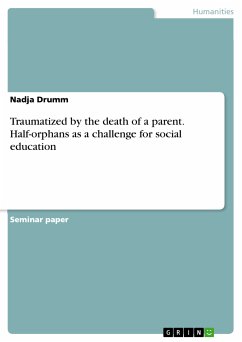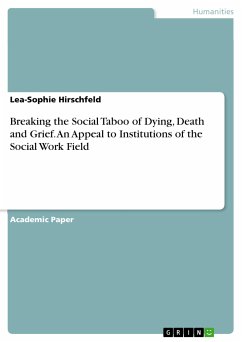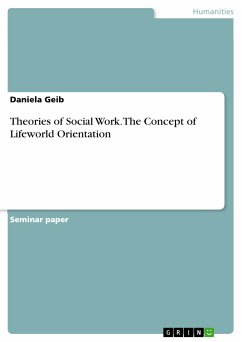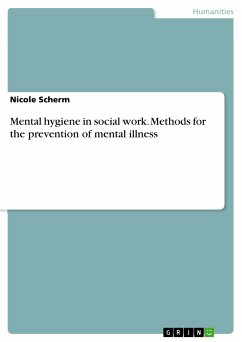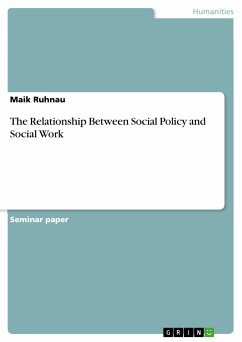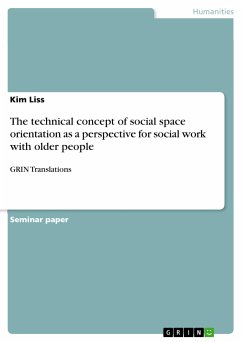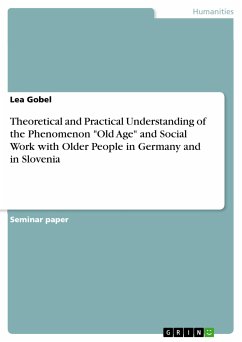Seminar paper from the year 2007 in the subject Social Work, grade: 1,5, University of Trier, language: English, abstract: As long as the parents are alive, we are still children who do not take death seriously. But when they die, it is as if a wall that separated us from death were torn down. Christian Fürchtegott Gellert The death of one's parents is a dramatic and devastating experience for most people. However, by adulthood one has usually become largely detached from one's parents and developed into an autonomous person, so that the loss of one's parents can be dealt with appropriately after a period of grief. However, children are - the younger the more - physically and emotionally dependent on the affection and care of their parents, so much that the loss of a parent, their primary caregiver, often overwhelms the child's coping mechanisms to a great extent. The death of the parents is therefore, in most cases, a traumatic experience in childhood. If the surviving parent cannot give the child the necessary support and security as a result of this experience, it is advisable to seek professional help. While psychotherapy is a recognized method for dealing with traumatized children, the possibilities of education in this context are largely neglected. In agreement with Weiss, I am extremely critical of the tendency of many social workers to delegate work with traumatized children to the closed framework of therapy because of their own insecurities, because these children are not only traumatized children in the therapeutic setting, but also in the educational. Unfortunately, social pedagogy has so far not dealt with this topic enough, so that Denner's demand to "develop a socio-pedagogical model for dealing with traumatized children and young people" has not yet been realized. Knowing this deficit, I would like to discuss the possibilities of a socio-educational intervention for children who have been traumatized by the death of a parent.
Dieser Download kann aus rechtlichen Gründen nur mit Rechnungsadresse in A, B, BG, CY, CZ, D, DK, EW, E, FIN, F, GR, HR, H, IRL, I, LT, L, LR, M, NL, PL, P, R, S, SLO, SK ausgeliefert werden.

